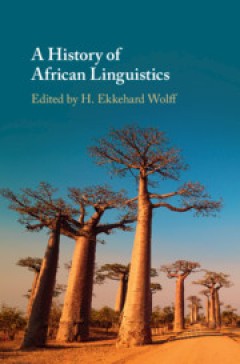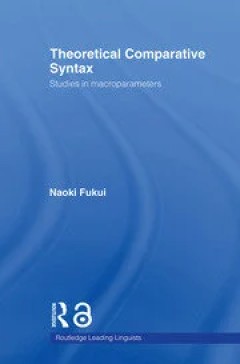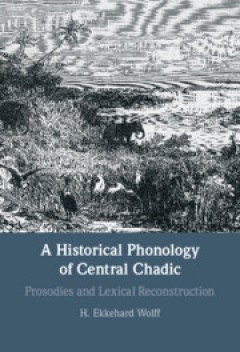Filter by

Semantics, tense, and time :an essay in the metaphysics of natural language
"A Bradford book."AnnotationOCLC-licensed vendor bibliographic record.
- Edition
- -
- ISBN/ISSN
- 0585101175
- Collation
- 1 online resource
- Series Title
- -
- Call Number
- -

The seasoned Schemer
The notion that "thinking about computing is one of the most exciting things the human mind can do" sets both The Little Schemer (formerly known as The Little LISPer ) and its new companion volume, The Seasoned Schemer , apart from other books on LISP. The authors' enthusiasm for their subject is compelling as they present abstract concepts in a humorous and easy-to-grasp fashion. Together, the…
- Edition
- Second edition
- ISBN/ISSN
- 9780262287883
- Collation
- 1 online resource (224 pages).
- Series Title
- -
- Call Number
- -

Rhyme and reason :an introduction to minimalist syntax
OCLC-licensed vendor bibliographic record.
- Edition
- -
- ISBN/ISSN
- 9780262285377
- Collation
- 1 online resource (xlii, 669 pages) :illustrations
- Series Title
- -
- Call Number
- -

Representing time in natural language :the dynamic interpretation of tense an…
"A Bradford book."Alice ter Meulen integrates current research in natural language semantics, with detailed analyses of English discourse, and logical tools from a variety of sources into an information theory that provides the foundation for computational systems to reason about change and the flow of time. The topic of temporal meaning in texts has received considerable attention in recent ye…
- Edition
- -
- ISBN/ISSN
- 0585355339
- Collation
- 1 online resource (xii, 144 pages)
- Series Title
- -
- Call Number
- -

The reasoned schemer
Includes index."The goal of The Reasoned Schemer is to help the functional programmer think logically and the logic programmer think functionally. The authors of The Reasoned Schemer believe that logic programming is a natural extension of functional programming, and they demonstrate this by extending the functional language Scheme with logical constructs - thereby combining the benefits of bot…
- Edition
- -
- ISBN/ISSN
- 0262256177
- Collation
- 1 online resource (x, 169 pages) :illustrations
- Series Title
- -
- Call Number
- -

Words without meaning
"A Bradford book."According to the received view of linguistic communication, the primary function of language is to enable speakers to reveal the propositional contents of their thoughts to hearers. Speakers are able to do this because they share with their hearers an understanding of the meanings of words. Christopher Gauker rejects this conception of language, arguing that it rests on an unt…
- Edition
- -
- ISBN/ISSN
- 9780262273596
- Collation
- 1 online resource (xi, 299 pages).
- Series Title
- -
- Call Number
- -

Web Development with Go Building Scalable Web Apps and RESTful Services
Take a deep dive into web development using the Go programming language to build web apps and RESTful services to create reliable and efficient software. Web Development with Go provides Go language fundamentals and then moves on to advanced web development concepts and successful deployment of Go web apps to the cloud. Web Development with Go will teach you how to develop scalable real-wor…
- Edition
- -
- ISBN/ISSN
- 978-1-4842-1052-9
- Collation
- -
- Series Title
- -
- Call Number
- -

A History of African Linguistics
Bringing together a team of leading scholars, this volume forms the first global history of African linguistics as an autonomous academic discipline, covering Africa, America, Asia, Australia, and Europe. Defining African linguistics, the volume describes its emergence from a 'colonial science' at the turn of the twentieth century in Europe, where it was first established mainly in academic ins…
- Edition
- -
- ISBN/ISSN
- 9781108283977
- Collation
- -
- Series Title
- -
- Call Number
- -

Theoretical Comparative Syntax
Collected for the first time in a single volume, these essays and articles by Naoki Fukui form an outline of some of the most significant and formative contributions to syntactic theory. Focusing particularly on the typological differences between English/type language and Japanese/type languages, Fukui examines the abstract parameters that both link and divide them. Linguistic universals are c…
- Edition
- -
- ISBN/ISSN
- -
- Collation
- -
- Series Title
- -
- Call Number
- -

A Historical Phonology of Central Chadic
Of all of the African language families, the Chadic languages belonging to the Afroasiatic macro-family are highly internally diverse due to a long history and various scenarios of language contact. This pioneering study explores the development of the sound systems of the 'Central Chadic' languages, a major branch of the Chadic family. Drawing on and comparing field data from about 60 differen…
- Edition
- -
- ISBN/ISSN
- 9781009024310
- Collation
- -
- Series Title
- -
- Call Number
- -
 Computer Science, Information & General Works
Computer Science, Information & General Works  Philosophy & Psychology
Philosophy & Psychology  Religion
Religion  Social Sciences
Social Sciences  Language
Language  Pure Science
Pure Science  Applied Sciences
Applied Sciences  Art & Recreation
Art & Recreation  Literature
Literature  History & Geography
History & Geography